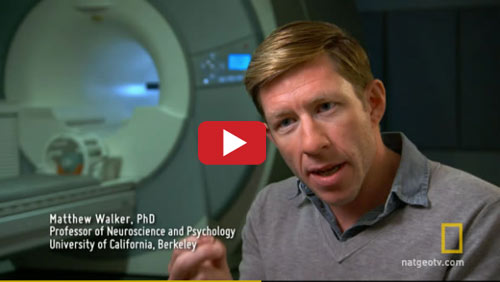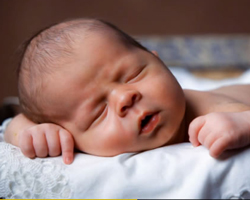‘Sleepless in America’ documentary to feature Berkeley research
We spend one-third of our lives sleeping, and yet it is only in the last decade or so that scientists have begun to really understand why. Among other things, UC Berkeley sleep researcher Matthew Walker has linked sleep deprivation to psychiatric disorders, obesity, risky behavior, post-traumatic stress disorder, learning and memory loss in old age.

On Sunday, Nov. 30, Walker and other scientists will be featured in the captivating documentary Sleepless in America, on the National Geographic Channel.
A co-production of thePublic Good Projectsand the National Institutes of Health, the documentary lays out in sometimes gripping detail the perils of getting too little sleep. For more details about sleep research at UC Berkeley, click on the following links.

- Sleep deprivation linked to junk food cravings
- Tired and edgy? Sleep deprivation boosts anticipatory anxiety
- Sleepless nights can turn lovers into fighters
- Pulling an all-nighter can bring on euphoria and risky behavior
- Jet lagged and forgetful? It’s no coincidence
- Sleep loss linked to psychiatric disorders
- An afternoon nap markedly boosts the brain’s learning capacity
- As we sleep, speedy brain waves boost our ability to learn
- Dream sleep takes sting out of painful memories
- Poor sleep in old age prevents brain from storing memories
- Teen night owls likely to perform worse academically, emotionally
- Will more sleep help teens shake off depression?
- Dim the lights. Study gets teen night owls to bed earlier
Related information:
